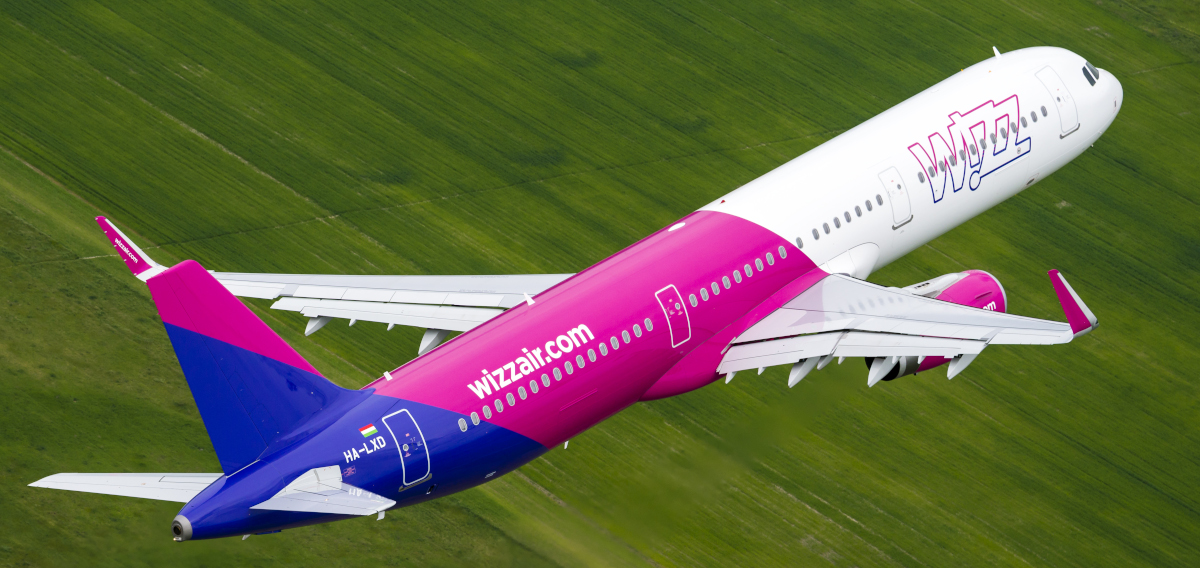Wizz Air Wins the World Finance Most Sustainable Low-Cost Airline Award for the Fourth Consecutive Year
4th July 2024

AIRLINE HONOURED TO RECEIVE THE WORLD FINANCE SUSTAINABILITY AWARD ONCE AGAIN
Wizz Air, Europe’s fastest growing and most environmentally sustainable airline globally* has been named the “Most Sustainable Low-Cost Airline” for the fourth consecutive year at the World Finance Sustainability Awards 2024. This accolade underscores the airline’s achievements in respect of its part in the decarbonisation of the airline industry.
Wizz Air leads the aviation industry with the lowest carbon emission intensity per passenger / km among its competitors and remains committed to significantly reducing its CO2 intensity by 2030. During the financial year 2024, Wizz Air achieved a record average CO2 intensity result, which amounted to 52 grams per passenger / km. This reduction in emission intensity is as a direct result of the Company’s fleet renewal plan and investment in best technology aircraft. It continues to add more Airbus A321 neo aircraft to its fleet, resulting in an average fleet age of 4.3 years. In April 2024 the airline, building on its achievements, announced its new aspirational goal to power 10% of its flights with sustainable aviation fuel by 2030. The new aspiration further strengthens Wizz Air’s position as an industry leader in sustainability and will drive its commitment to reducing its carbon emissions per passenger/km by 25% by 2030.
Yvonne Moynihan, Corporate and ESG Officer at Wizz Air, said: “Wizz Air is proud to be recognised by World Finance for the fourth consecutive year for our unwavering commitment to sustainability. Our ULCC business model ensures we are sustainable by design. In addition to renewing our fleet and enhancing operational efficiency, we are heavily investing in sustainable aviation fuel, which is the most significant means for reducing aviation emissions in the mid-term. To get to net zero the industry needs to collaborate and bring all the relevant actors in the aviation ecosystem together to ensure the technological development needed is supported and financed. Therefore, governments and policymakers will play a key role in creating the necessary frameworks to provide meaningful incentives to encourage strategic investment in renewable energy and low carbon technologies.
*According to the CAPA – Centre for Aviation Awards for Excellence 2022-2023
